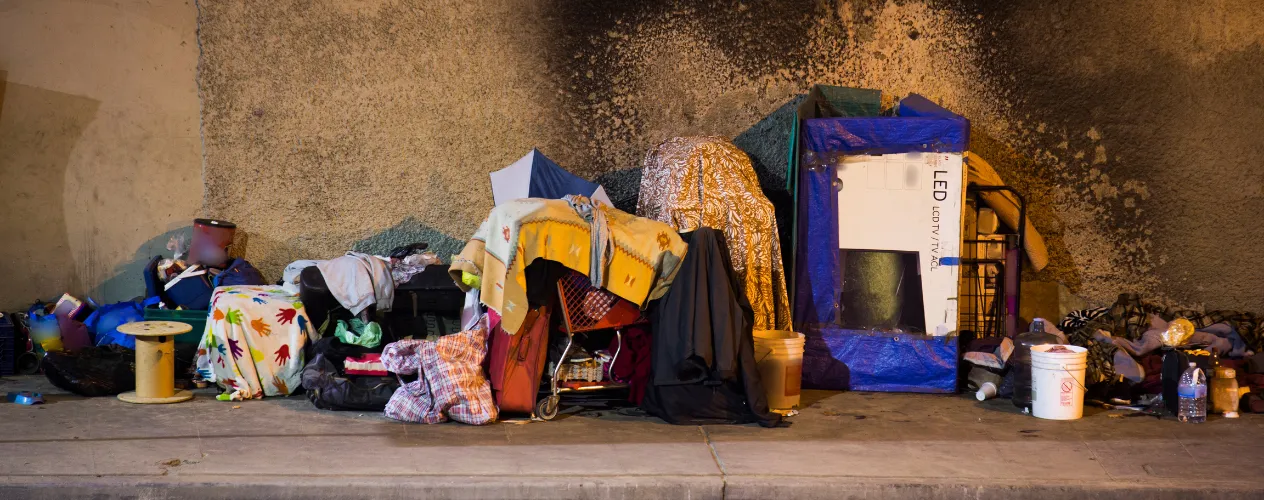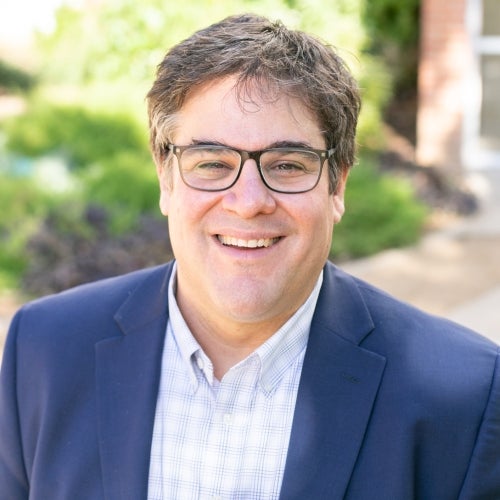Consequences of disbanding homeless encampments and rehousing efforts in Los Angeles County

MEDIA ALERT
BACKGROUND & KEY FINDINGS
In Los Angeles County, an estimated 75,000 people experience homelessness on any given night, with more than 70% of the individuals living unsheltered on the streets, in tents or makeshift shelters, or in vehicles. In 2022, nearly 1,700 people experiencing homelessness died on the streets.
The Periodic Assessment of Trajectories of Housing, Health and Homelessness Study (PATHS) — a joint research initiative between the USC Dworak-Peck School of Social Work and UCLA Fielding School of Public Health, focusing on the lives and experiences of people experiencing homelessness (PEH) in LA County — features a representative sample of PEH who were unsheltered, with ongoing monthly survey tracking on housing, health, and well-being even if respondents move into housing or shelter.
PATHS is the first known study to use large-scale survey data to document the consequences of encampment sweeps and rehousing efforts over time. The study reports on the experiences of encampment sweeps occurring between April and September 2023, and on housing and health trajectories observed throughout 2022 - 2023.
Key findings include:
- 53% of encampment sweeps — the forced relocation of PEH from where they are sleeping — involved police contact, with only 15% involving a homelessness outreach worker. PEH who responded to the survey and experienced an encampment sweep were equally likely to receive a police citation as they were to receive housing, a 9% chance of both.
- More than half of 346 unsheltered respondents experienced an encampment sweep, with most experiencing more than one sweep, during the months of the study.
- Respondents experiencing homelessness fared better outcomes associated with permanent housing compared to those provided more temporary shelters. For temporary shelters and interim housing, high rates of homelessness resulted and almost no improvement in access to basic needs and health care. Permanent housing performed considerably better, with more than 90% retention, yet only 7% of the respondents were able to access permanent housing. However, the 7% were highly likely to remain housed and they saw across-the-board improvements in basic needs, including a reduction in monthly hospital emergency room usage from 14% to 6%.
- Analysis of the respondents’ health care access by housing status further established the advantages of permanent housing relative to temporary housing. In months spent in permanent housing, respondents reported 25% to 60% improvements in health care access, such as a 6% rate of monthly hospital emergency room admissions vs. 14% for unsheltered individuals. Months spent in shelters showed little advantage compared to individuals who were unsheltered, with the exception of lower levels of food insecurity.
AUTHORS
- Randall Kuhn, co-principal investigator of the PATHS study and professor at the UCLA Jonathan and Karin Fielding School of Public Health
- “The PATHS study illuminates the limitations of enforcement-led approaches to homelessness. Contrary to the notion of encampment sweeps an opportunity for outreach, what we really see is that these sweeps are mostly carried out by police not outreach workers, resulting in a major increase in burdens of displacement and police citations with only a miniscule number of people housed.” – Randall Kuhn
- “The PATHS study illuminates the limitations of enforcement-led approaches to homelessness. Contrary to the notion of encampment sweeps an opportunity for outreach, what we really see is that these sweeps are mostly carried out by police not outreach workers, resulting in a major increase in burdens of displacement and police citations with only a miniscule number of people housed.” – Randall Kuhn
- Benjamin Henwood, co-principal investigator of the PATHS study and professor at the USC Suzanne Dworak-Peck School of Social Work
- “Due to the lack of affordable housing, our system struggles to provide the evidence-based practice of housing first. The PATHS study shows that alternatives such as increasing street sweeps and shelter does little to address homelessness and can be disruptive to the lives of those most vulnerable.” – Benjamin Henwood
- “Due to the lack of affordable housing, our system struggles to provide the evidence-based practice of housing first. The PATHS study shows that alternatives such as increasing street sweeps and shelter does little to address homelessness and can be disruptive to the lives of those most vulnerable.” – Benjamin Henwood
- Jessie Chien, doctoral candidate at the UCLA Jonathan and Karin Fielding School of Public Health
FUNDING SOURCES
- Conrad N. Hilton Foundation
- USC Homeless Policy Research Institute
- UC Office of the President
- UCLA Initiative to Study Hate
RELATED WORK
- “Under Threat: Surveying Unhoused Angelenos in the Era of Camping Enforcement"
- “Examining the Role of Duration and Frequency of Homelessness on Health Outcomes Among Unsheltered Young Adults”
- “Unsheltered Homelessness and Health: A Literature Review”
- “Comparing Place-Based and Scatter-Site Permanent Supportive Housing for People Experiencing Homelessness During the COVID-19 Pandemic”
Contact: Carla Denly, cdenly@support.ucla.edu
